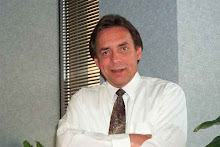
Gregory Sawyer, D. C.
"Hyperventilation syndrome" is not a respiratory disease but a psychological or emotional disorder. The term hyperventilation simply means to breathe more than necessary. It is caused by anxiety or a panic attack due to major traumatic event- catastrophe, loss of a relative, posttraumatic disorder due to operation, war and others. Although is not life-threatening, it can lead to a significant secondary anxiety and fear while decreasing the oxygenation to the brain, heart and other important organs. Despite not frequent, the hyperventilation syndrome is quite scary and staying calm is the most important approach to control it.
Common symptoms:
1. Numbness and tingling in the fingers and lips.
2. Spasms in the hands and feet are.
3. Cold chills or hot ways.
4. Erratic or even dangerous behavior.
5. Chest pains.
What one can do?
1. Try to calm down. You already recognize the syndrome and staying calm is the best way to manage it to its best.
2. Try to breath slowly and deeply while try to keep your breath as longer as possible- then exhale and hold another breath.
3. If you have someone around you inform him/her on your problem. His calming voice will reflect your proper serenity and calmness.
4. Go outside and take a fresh air. Staying safe or not working around sharp or electrical objects is the best way to reassure you.
5. Do not follow the frequently seen on line advice to breathe in a paper bag as it is shown on our pictures as it may increase dangerously the CO2 levels.
Common symptoms:
1. Numbness and tingling in the fingers and lips.
2. Spasms in the hands and feet are.
3. Cold chills or hot ways.
4. Erratic or even dangerous behavior.
5. Chest pains.
What one can do?
1. Try to calm down. You already recognize the syndrome and staying calm is the best way to manage it to its best.
2. Try to breath slowly and deeply while try to keep your breath as longer as possible- then exhale and hold another breath.
3. If you have someone around you inform him/her on your problem. His calming voice will reflect your proper serenity and calmness.
4. Go outside and take a fresh air. Staying safe or not working around sharp or electrical objects is the best way to reassure you.
5. Do not follow the frequently seen on line advice to breathe in a paper bag as it is shown on our pictures as it may increase dangerously the CO2 levels.
If you would like to learn more on the above topic, please call and require a personal consultation: (715) 392-7591; (218) 213-6167; or (218) 213-7087
These statements have not been evaluated by the Food and Drug Administration. The material in this newsletter is provided for informational purposes only. Thus our intentions are not to diagnose, cure, mitigate, treat or prevent any disease. If you use the information in this newsletter without the approval of your health professional, the authors of this letter do not assume any responsibility. Copyright @ 2009, Natural Health-Wellness LLC. All rights reserved.
These statements have not been evaluated by the Food and Drug Administration. The material in this newsletter is provided for informational purposes only. Thus our intentions are not to diagnose, cure, mitigate, treat or prevent any disease. If you use the information in this newsletter without the approval of your health professional, the authors of this letter do not assume any responsibility. Copyright @ 2009, Natural Health-Wellness LLC. All rights reserved.


No comments:
Post a Comment